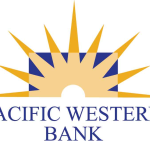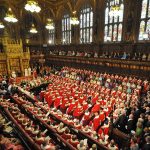Charlotte School of Law, a beset revenue driven law school, has closed down, state authorities affirmed — making it the country’s second authorize law school to close its entryways this year.
Law School Scam
Despite the fact that Charlotte Law did not issue a formal shutting notice, its permit to work in North Carolina terminated, it had no endorsed arrangement to show understudies and, as of Tuesday, it never again had a site.
The North Carolina lawyer general’s office, which has been examining the law school for a while, affirmed that the school had shut.
“I need to express my mistake for the understudies and their families influenced by Charlotte School of Law’s disappointment,” Josh Stein, the lawyer general, said in an announcement on Tuesday.
The law school had been holding on by almost nothing for quite a long time despite tumbling enlistment after the American Bar Association’s accreditors put it on post trial supervision in November.
The lawyer general’s office has been inspecting whether Charlotte Law’s understudies had the expected data to select for the school’s law degree.
The lawyer general’s office advised the government Education Department that Charlotte Law was never again authorized to work in the state. Without a permit, “Charlotte School of Law is currently required to be shut,” Mr. Stein said in his announcement.
Prior this year, trustees of Whittier College in California declared the conclusion of Whittier Law School, the main completely certify law school to surrender to decreases in understudy enlistments and educational cost income.
Charlotte Law had battled with those same issues and that’s only the tip of the iceberg. The A.B.A’s. authorizing body had put the school on post trial supervision subsequent to discovering its exposures for understudies missed the mark concerning prerequisites. Not long after, the government Education Department refered to the school for “generous distortions” to understudies about its consistence with accreditation principles.
A week ago, the University of North Carolina’s leading body of governors, which regulates authorizing of state instructive organizations, said the school’s permit lapsed on Aug. 10.
Joshua N. Ellis, representative for the University of North Carolina framework, said that Charlotte Law had been working since June 21 on a confined permit that relied upon meeting a few conditions. One of them was that the government Education Department decide if Charlotte Law understudies could take an interest in elected understudy credit programs.
Charlotte Law had already demanded that its understudy advances would be reestablished, yet the check clearly ran out on its endeavors.
Neither the school nor its leader, Chidi Ogene, reacted to calls or messages on Tuesday to affirm the school’s status.
As of the fall of 2016, Charlotte Law had around 700 understudies enlisted, and in the vicinity of 2010 and 2016, got $337.1 million in government understudy credits for educational cost and understudy everyday costs, as indicated by Law School Transparency, a charitable association that tracks information about the country’s law schools.
As of late enlisted understudies are qualified for finish credit absolution, Mr. Stein, the lawyer general, said. He added that he had kept in touch with Betsy DeVos, the training secretary, for the understudy borrowers.
“I asked her to pronounce that uncommon conditions exist with this conclusion — a move that would extend credit pardoning rights to every one of the understudies who left Charlotte School of Law amid or after the 2016 fall semester,” he said.
Starting at now, understudies who pulled back from the school over the most recent 120 days can have their obligation released, yet the individuals who pulled back over 120 days prior would not be qualified.
Charlotte Law was one of three battling revenue driven schools claimed by the InfiLaw Corporation, some portion of Sterling Partners, a private value firm with workplaces in Baltimore and Chicago. The others are Arizona Summit Law School and Florida Coastal School of Law.
InfiLaw, situated in Naples, Fla., did not react to endeavors to get in touch with them.
Faultfinders have griped that Charlotte Law has more than once pushed back an end date to bring down the understudy credit release sums it should pay.
Kyle McEntee, official chief of Law School Transparency, and a commentator of Charlotte Law, stated, “The school and its eager proprietors have fizzled their understudies, the Charlotte people group and the lawful calling.”
Mr. Stein concurred, taking note of that “while great lawyers have moved on from Charlotte School of Law, the school over and over again neglected to convey for its understudies.”
“Charlotte School of Law told understudies they would be ‘prepared to rehearse upon graduation,’ yet less than one out of five approaching understudies of the Class of 2016 graduated, did the certified lawyer’s exam and landed a position that required the degree for which they spent more than $100,000.”
Selected understudies and others were not educated by the school that it would close down, however were told casually by R. Lee Robertson Jr., leader of the school’s graduated class affiliation.
Mr. Robertson said he talked on Monday to the break dignitary, Paul A. Meggett, and discovered that the school’s permit had lapsed and that the American Bar Association had not endorsed Charlotte Law’s option showing get ready for its present understudies.
“It creates the impression that there is no way ahead,” Mr. Robertson wrote in his email to approximately 2,200 school graduated class. “Our law school, it appears, is shutting, as of now.”
Rectification: August 16, 2017
A prior form of this article misquoted the era when the Charlotte School of Law got $337.1 million in government understudy credits for educational cost and understudy everyday costs. It was in the vicinity of 2010 and 2016, not a year ago.


